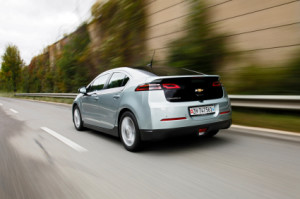Dear Liz: You recently answered a question about whether to finance a car purchase. I bought a car in 1963 whose wheels couldn’t stay in alignment. By the time I had driven it 20,000 miles, I was on my third set of new tires. My next car had other repeated problems. Solution? Since then I have always leased and when the lease is up, I buy the car if it has been reliable. By then, the car is cheaper.
Answer: There are at least two ways to view your approach to cars. One is that you found an approach that suits you. The other is that you’ve been overpaying for vehicles for decades based on two long-ago experiences. Meanwhile, car reliability has steadily — and dramatically — improved.
Although there are exceptions, leasing is generally the most expensive way to pay for a car. And buying cars after the lease is over also can be problematic if the buyout price, which typically is set at the beginning of the lease, is higher than the vehicle’s market value.
On the surface, leasing can seem like a good deal. The car’s always under warranty and unlikely to need repairs. Lease payments are often lower than loan payments, since you’re not paying principal. That means you can drive a more expensive car than you could afford if you were paying cash or financing.
But that also means you don’t have any equity in the vehicle. Plus, leasing means you’re paying for cars during their first few years on the road, when they’re rapidly depreciating.
Sometimes manufacturers sweeten lease deals to make them less expensive than an equivalent loan, but usually you’ll pay a lot more over time leasing than you would buying.
 Today’s top story: Why you should name a ‘trusted contact.’ Also in the news: How to pay off your car lease, and how COVID grants, relief programs impact 2021 business taxes.
Today’s top story: Why you should name a ‘trusted contact.’ Also in the news: How to pay off your car lease, and how COVID grants, relief programs impact 2021 business taxes. Today’s top story: What a payroll tax deferral may mean for your paycheck and taxes. Also in the news: 4 ways to end your car lease early, what to do if losing your job means losing life insurance, and don’t skip these estate planning moves during the pandemic.
Today’s top story: What a payroll tax deferral may mean for your paycheck and taxes. Also in the news: 4 ways to end your car lease early, what to do if losing your job means losing life insurance, and don’t skip these estate planning moves during the pandemic. 